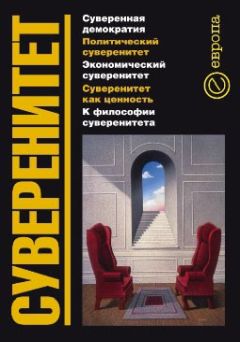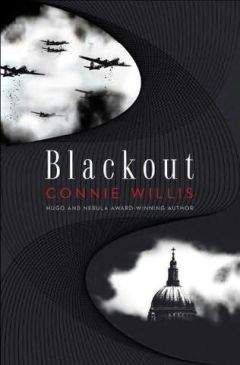В. Каушанская - Сборник упражнений по грамматике английского языка
1. Том никогда не упускал случая убежать из школы и поиграть с товарищами. 2. Он был уверен, что сумеет скрыть от тети Полли свои проказы. 3. Том отрицал, что ходил купаться, по тетя Полли узнала об этом. 4. Она была недовольна тем, что Том обманул ее. 5. Том был единственным сыном ее покойной сестры; она очень любила мальчика и избегала наказывать его. 6. Однако на этот раз она решила наказать Тома за то, что он ходил купаться без разрешения. 7. Надо было побелить забор, и тетя Полли велела Тому белить его в субботу. 8. Мальчику не улыбалась мысль работать в такое чудесное утро, и он просил тетю Полли простить его за то, что он ее ослушался. 9. Тому не; удалось заставить Джима работать вместо себя: пришла тетя Полли и запретила Джиму белить забор. 10. Он осмотрел свои сокровища, но их было немного, и ему пришлось отказаться от мысли уговорить мальчиков помочь ему белить забор. 11. Но вскоре ему пришла в голову блестящая мысль, и он принялся за работу (to set to work) с таким видом, как будто он ничего не имел против того (to mind), чтобы белить забор в это солнечное утро. 12. Когда пришел Бен, Том продолжал работать, не обращая внимания на товарища. 13. Бен смотрел на Тома с удивлением: Том работал в субботу, и Бену казалось, что он работает с удовольствием (to enjoy the work). 14. Наконец, Том повернулся к Бену и сказал, что все зависит от того, нравится ли тебе работа или нет. 15. После этого дело представилось в новом свете (that put the thing in a new light), и Бен не мог не позавидовать приятелю. 16. Он попросил, Тома позволить ему поработать. «Ты можешь положиться на то, что я сделаю это хорошо», — сказал он. 17. Том ответил, что тетя Полли будет возражать против того, чтобы Бен белил забор. 18. Но Бен упорно просил (to keep on) Тома дать ему поработать, и тот, наконец, согласился. 19. Бен гордился тем, что Делает такую трудную работу. 20. Тетя Полли была уверена, что Том давно уже перестал (to leave off) работать и убежал на речку. 21. Она была очень удивлена, что Том так хорошо и быстро побелил забор. 22. Она сказала, что мальчик заслуживает награды, и дала ему большое яблоко.
(С)
1. Марья Ивановна скоро перестала со мной дичиться (to be shy of somebody). (Пушкин)2. Между тем Палаша взяла у нас наши шпаги и отнесла в чулан. Я не мог не засмеяться. (Пушкин)3. Кирила Петрович гордился сим прекрасным заведением и никогда не упускал случая похвастаться оным. (Пушкин)4. «Простите..., что я пришла к вам», — сказала она. (Л. Толстой)5....я только удивляюсь, как ты из полка приехал (to get away from the regiment). (Л. Толстой)6. В конце января княжна Марья уехала в Москву, и граф настоял на том, чтобы Наташа ехала с нею, с.тем чтобы посоветоваться с докторами. (Л. Толстой)7. Наташе совестно было ничего не делать в доме, тогда как все были так заняты. (Л. Толстой)8. «Папа, ничего (to mind), что я раненых пригласила в дом?» — сказала ему Наташа. (Л. Толстой)9. Володя заметно важничал... (to put on airs); он гордился тем, что приехал на охотничьей лошади (to ride a hunter). (Л. Толстой)10. «Благодарствуйте, что сдержали слово», — начала она... (Тургенев)11. Она [Анна Сергеевна] до обеда не показывалась и все (to keep) ходила взад и вперед по комнате. (Тургенев)12. С Фенечкой ему не удалось проститься: он только переглянулся с нею из окна (to exchange glances with somebody). (Тургенев)13. Он [Базаров] перестал (to give up) гулять в одиночку и начал искать общества... (Тургенев)14. Катя ничего не отвечала, но перестала (to cease) глядеть на Аркадия. (Тургенев)15. И она стала говорить с Кити (Л. Толстой)16. Он [Каренин] любил говорить о Шекспире, Рафаэле, Бетховене, о значении новых школ поэзии и музыки... (Л. Толстой)17. Алексей Александрович за правило поставил каждый день видеть жену... (to make it a rule to do something); но избегал обедов дома. (Л. Толстой) 18. Юн не стоит того, чтобы ты страдала из-за него» (to grieve over somebody), — продолжала Дарья Александровна... (Л. Толстой)
Exercise 4. State the function oi the gerund and Gerundial Constructions. Translate into English.
1. Nobody can go on living without some belief. (Greene) 2....she did not like being plunged back into a slave state. (Stone) 3. He greeted me noisely, but I cut him short by giving him the telegram. (Snow)4. "She cannot sleep without seeing and speaking to you once more," I said. "She does not like the thought of leaving you." (Ch. Bronte)5. Without putting anything into words, they bade each other farewell. (Wilson)6. I remember laughing aloud, and the laugh being carried by the wind away from me. (Du Maurier)7. There came the sound of the door closing then being locked. (Priestley) 8. Upon awakening she dressed quickly and left the house. (Stone)9. He felt better for having written the letter. (Cronin)10. "It's no good you hating it," said Mr. Bunting, becoming didactic. (Greenwood) 11. Do you mind giving me your name and telephone number, please? (Priestley) 12. Peter Saward only replied by staring at the paper knife and shaking his head slowly to and fro, and twisting his long legs into knots under the desk. (Murdoch)13. Mr. Dorrit positively trembled in addressing the great man. (Dickens)14. Unfortunately this fruitful silence was ruined by the sound of a door being banged. (Priestley) 15. He never ceased talking. (Coppard)16. Well, it's no use my telling you a lie. (Shaw)17. Life seemed worth fighting for. (Dreiser)18. Petra sat through her first lesson without saying a word and without paying much attention to the lecture and the examples on the blackboard. (Heym)19. But now a difficulty arose — hostile Indians could not break the bread of hospitality together without first making peace, and this was a simple impossibility without smoking a pipe of peace. (Twain)20. Only the other day they had been talking about something happening, and now it had happened to him. (Snow)21. I was torn between the fear of hurting a nice woman's feelings and the fear of being in the way. (Maugham)22. She cursed herself for not having thought to bring a visiting card. (Murdoch)23. It is awfully hard work doing nothing. (Wilde)24. He was angry with me for bringing the news. (Snow)25. He went on talking to my wife. (Hemingway)26. She was listening hard all the time for any sound of Jan Lusiewicz descending the stairs. (Murdoch)27. After washing his heavy stone cup and tin plate..., he stretched himself wearily on the bed. (Dreiser)28. She enjoyed giving parties. (Stone)29. He knew that I, or any competent man would not have denied a point so specific without being dead sure. (Snow)30. I wish I'd never told you the truth, but it's no use denying it. (Braine) 31. He meant to begin his investigation by seeing the church. (Galsworthy)32. But outside it kept on raining. (Hemingway)33. They could not understand how he had so nearly succeeded in deceiving them. (Priestley) 34....in ] passing under a lamp, Graham encountered my eye. (Ch. Bronte)35. Stephen was absorbed the greater part of the time in wishing he were not forced to stay in town yet another day. (Hardy) 36. Why was going with Joseph any different from going with Elinor? (Heym)37. She tried, by staring into the glass, to see what the expression was on the man's face. (Murdoch)38....little Hans nodded and smiled, and felt very proud of having a friend with such noble ideas. (Wilde)39. "You can't: have a war," said Douglas, "without someone getting hurt." (Snow)40. She was not conscious of having shown any special interest in Mr. Lincoln. (Stone)41. I began... by explaining the situation in the North. (Greene) 42. Being alone in your own country is worse than being alone anywhere else. (Heym)43. Mr. Bumble's conduct on being left to himself was rather inexplicable. (Dickens)44. He could stand behind the door and take a chance at surprising Joseph. (Priestley) 45. She seemed a little self-conscious now and she avoided meeting his eyes. (Wilson)46. At night... I would imagine him going up my stairs, knocking at my door, sleeping in my bed. (Greene)
Exercise 5. Insert the correct preposition before the gerund where required.
1. "I hated the idea __ your going," he said simply. (Greene) 2. She said: "Excuse me __ corning in __ knocking." (Lessing) 3. The others insisted __ accompanying them. (Lessing)4. I am tired __ being old and wise. (Greene)5. We'll look forward __ seeing you. (Hansford Johnson)6. Why were you so anxious to prevent anybody. __ leaving the house? (Maugham) 7. I'm afraid I shan't succeed __ being as sympathetic as you have the right to expect. (Maugham)8. I was afraid __ saying the wrong thing. (Maugham)9. Look here, it may sound funny, but I'm terrifically grateful to you __ saying it. (Hansford Johnson)10. Both windows needed __ cleaning. (Hansford Johnson)11. I've paid very heavily __ being a romantic girl. (Maugham)12. She could not bear __ lying. (Priestley) 13. I suppose nothing is gained __ delaying. (Maugham)14. They were in the habit __ coming up to I ondon for the season. (Maugham)15. We wouldn't mind __ being poor again. (Hansford Johnson)16. I didn't at all like the idea __ going to the station in the luggage cart. (Maugham)17. He looked at me for a long time __ answering. (Clark)18. He felt he was going to be denounced __ daring to suggest such a thing. (Priestley) 19. I thought you had just been blaming me __ being neutral. (Snow)20. If you won't tell me what's wrong, what's the use __ my being here? (Braine)
Exercise 6. Insert not+participle or without+gerund.
1. Dr. Wallace filled a pipe from the bowl on his desk, then put it down __ it. (to light) (Stone)2. __ what he wanted, he looked slowly about the room, (to find) (Priestley) 3. Zee drew a breath and leaned against the birch for a moment __ anything. (to say) (Aldridge) 4. I won't go abroad __ you. (to see) (Gatsworthy) 5. __ what.to reply, I remained silent, (to know) (Maugham)6.... on the street he would look directly at friends __ them, (to see) (Stone)7. Only thea.., __ what further to say, had he become silent, (to know) (Stone)8. We walked __ for a short while, (to speak) (Hansford Johnson)9. Would she have gone away __ you if she loved you? (to see) (Heym)10. Then she saw Lise and turned away, __ to talk with her. She went hastily to cross the road __ and was almost run over by a bus. (to want, to look) (Lindsay)11. __ to leave him in the club, I offered to take him home to my wife, or to go with him to his own house, deserted now. (to like) (Snow)12. He returned the salutes of several privates __ them, (to see) (Jones) 13. He stopped, __ how to continue and stood shifting from one foot to the other, (to know) (Greene)14. Miss Casement stood for a moment, __ whether to be pleased or not at this unforseen familiarity, (to know) (Murdoch)15. He sat down, __ his mackintosh, (to take off) (Snow)16. __, the driver rudely shrugged his shoulders, (to turn around) (Salinger)17. __ 1 any sale to take place 1 told Evan I wanted a chat with him and took him downstairs, (to wish) (Hansford Johnson)18. They sat there __ for several minutes. (to talk) (Mailer)19. __ him greatly, she could not be jealous in a disturbing way. (to love) (Dreiser)




